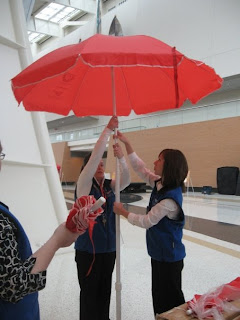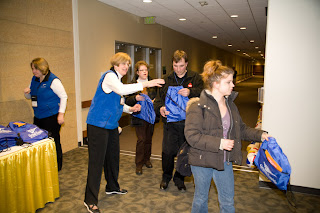
 During RCMA, we had shuttles taking attendees to and from the airport, to three different locations for a 3 hour event, to companies spread throughout GR, and to some of our biggest attractions.
During RCMA, we had shuttles taking attendees to and from the airport, to three different locations for a 3 hour event, to companies spread throughout GR, and to some of our biggest attractions.Here’s what helped make this process work:
- Clear communication with the drivers. We told them about the group, why it was important to us, and what they were doing at the places they were going.
- A greeter. We had volunteers on each bus who acted as a host, answering any questions that the attendees might have and assisting when neededed
- The right amount of busses. Just because you can afford more busses, it doesn’t mean the process will necessarily go faster. Set the transportation schedule to rotate so that the shuttles are not overlapping each other and holding everything up
- Going the wrong way. Work with the city if you feel that a shuttle bus would be better off making a turn in a no left turn lane or parking in a metered zone. They can be flexible and make things easier!
- Communicate the shuttle schedule to riders effectively. They will thank you!






